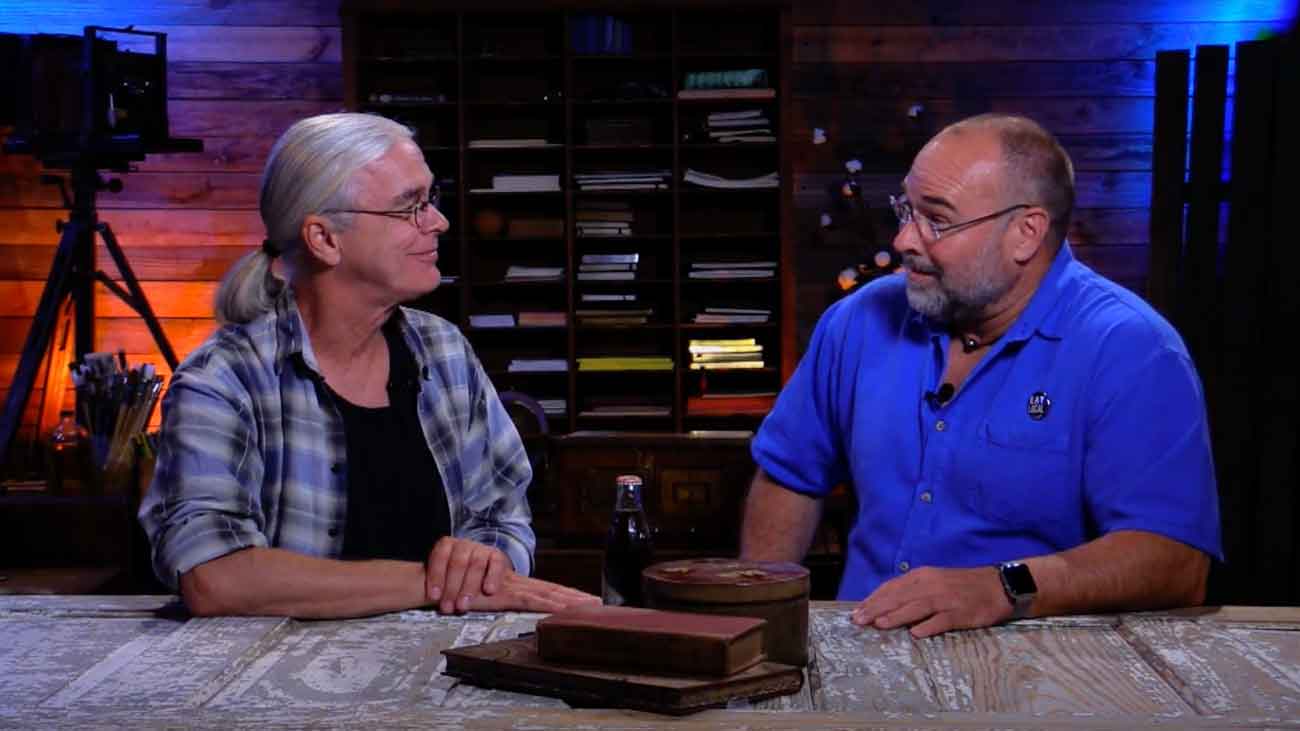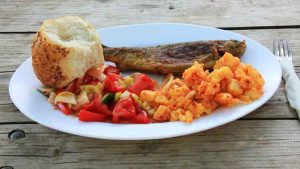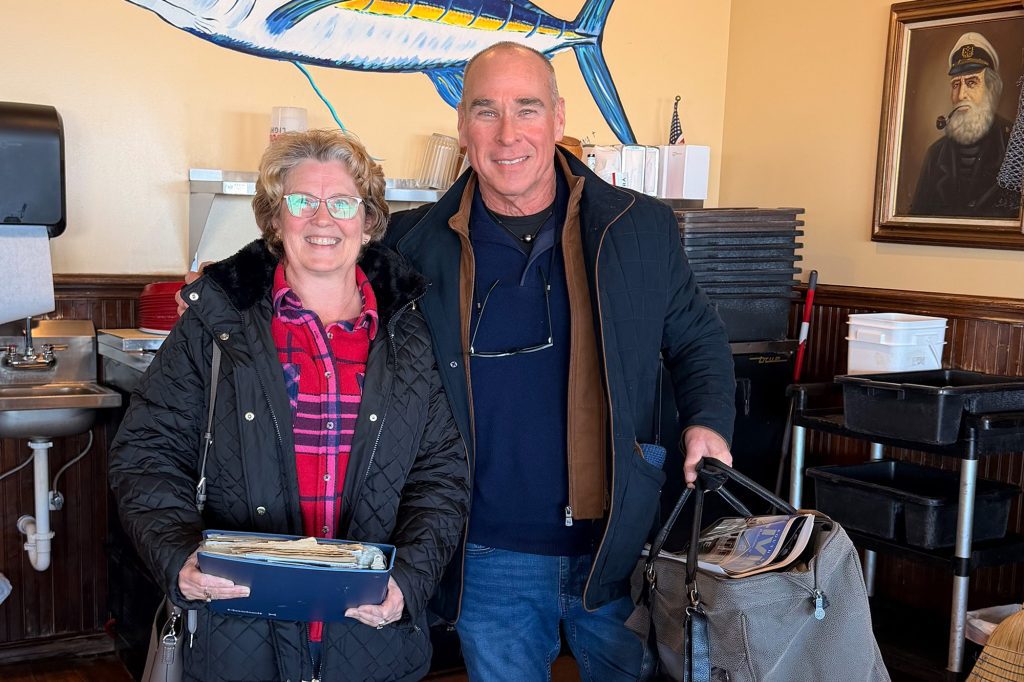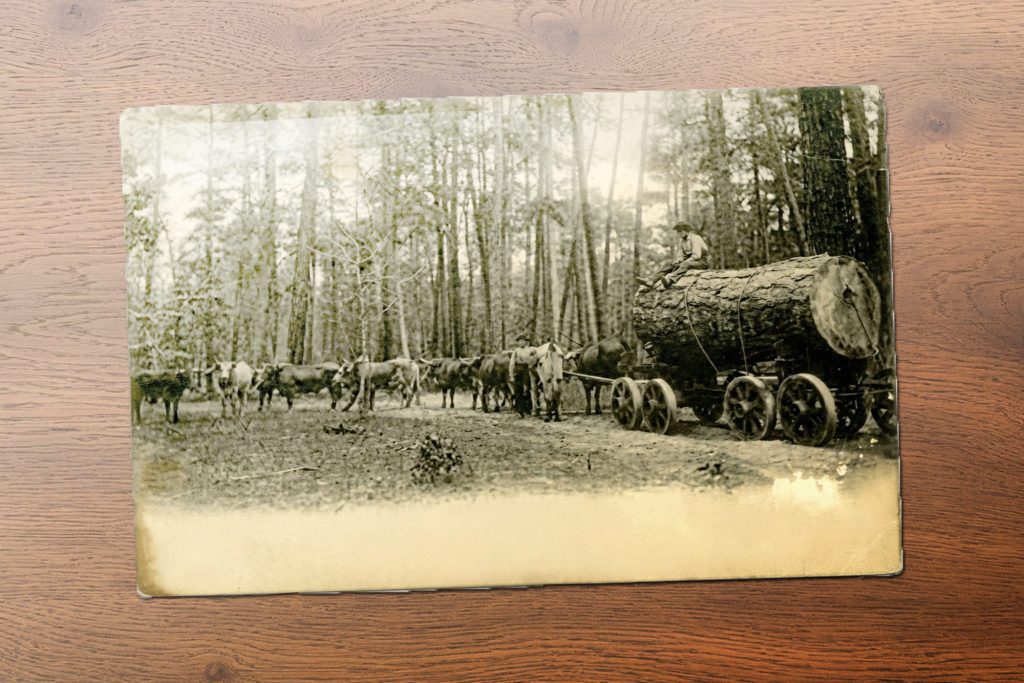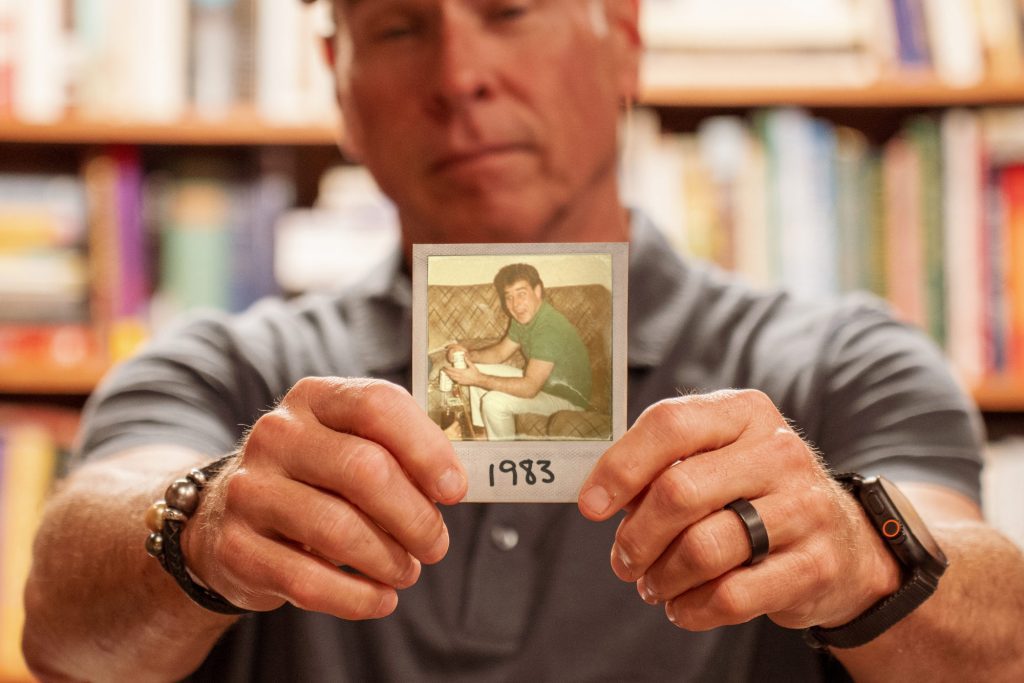Mississippi watercolorist, Wyatt Waters and I have just wrapped up the first season of our new television show, “Palate to Palette.” We filmed episodes all across our home state of Mississippi. It was a blast.
We travelled deep into the Mississippi Delta and hung out for a few days in Greenwood with our friend, Martha Foose. We spent a morning in the home kitchen of Oxford chef, John Currence, while he used an old-fashioned pressure cooker to cook— what turned out to be— the best pork roast I have ever eaten. Waters and I milked cows in the Mississippi State University dairy, and the Biscuit Lady in downtown Starkville taught the bachelor artist how to make homemade biscuits. We hung out with the Sonic Boom marching band at Jackson State University, spent time on a shrimp boat in Biloxi, and had a progressive dinner with Brett Favre at four of our restaurants in Hattiesburg.
Now that the season is finished and the final editing of the episodes is winding down, I have been reflecting on the experience and looking back on the whirlwind shooting schedule. I have travelled all over Mississippi my entire life. I have spent time with people in their restaurants and businesses. I’ve met people at book signings and all manner of events and celebrations. Though what really struck me while filming this show, was the fact that the greatest asset in Mississippi is its people.
Mississippians are the best. We are tough and resilient. We have endured a lot over the years. We have seen good times and bad. We have been on the right side of history and the wrong side of it. I believe that we have learned from past mistakes, and we are looking positively toward the future. It’s who we are.
Mississippians are some of the best storytellers on the planet. We meet, eat, and share stories. Ever since our prehistoric forefathers huddled in the open woods around a fire, eating a rack of mastodon ribs, storytelling has been an art. Nowhere is storytelling more treasured and refined as in Mississippi. We tell stories at the dinner table, at the hunting camp, on the road, in the den, at the tailgate, at the corner store, in church, and in bars. We tell stories on top of stories, and we tell stories to top other people’s stories. We also tell stories in song.
Music is one of life’s greatest gifts, and Mississippi is truly the birthplace of America’s music. I first heard that slogan when the state rolled it out on the highway signs at our state borders. It wasn’t until I spent a lot of time in Europe, that I realized that Mississippi is truly the birthplace of America’s music. There is no debate that the blues came from the Mississippi Delta, and if you believe Muddy Waters— and I do—who sang, “The blues had a baby, and they named the baby rock and roll.” Then it doesn’t take a college degree to figure out that the King of Rock and Roll, Elvis Presley, came from Tupelo. The grandfather of country music came from Meridian. According to The Rolling Stone Illustrated History of Rock and Roll (1992), the very first rock and roll note on a recorded record was Blind Roosevelt Graves’ song Dangerous Woman (recorded in my hometown of Hattiesburg). If we were known for nothing else, we could hang our hat and call it a day, just for the fact that we have given the world its best music.
But we are known for so much more— some of the world’s most treasured writers, performers, and athletes were born and raised here. For a small, poor state that ends up at the butt-end of a lot of lists, we have overachieved in some of the most important categories on the list. Again, it’s the people, it’s Mississippians. We take a back seat to no one when it comes to music, literature, and sports. And we haven’t even begun to talk about food.
When asked about his home state, Morgan Freeman once replied, “Hell, I’d live here for the food, alone.” It’s true. We have some of the world’s richest soil in the Mississippi Delta, and— in my opinion— the greatest seafood bounty on the planet just off of our Gulf Coast beaches in the warm waters of the Gulf of Mexico. In between the Delta and the Gulf are farms, gardens, and cattle ranches that have been passed down from generation to generation. We were doing “local” way before “local” was cool. It’s how we have always lived. It is what we did to survive through good times and bad. Most of us eat well morning, noon, and night, after church, at ballgames, and even at funerals.
A few weeks ago, a reporter who was writing a piece on the new television show, asked me, “What is the show about? What were the challenges?” It was an easy question to answer. Waters and I might know the state better than most. We just went to the places we love and visited with the people we admire. He painted. I ate. It was one of the easiest things we’ve ever done, because we know, and love the subject so well. It was like writing a love letter home without ever leaving.
Of course, there are a lot of areas still left undiscovered. We barely dipped into all of the corners and communities of this great state. There is more to do, and no two people will enjoy telling the rest of Mississippi’s story more than Waters and me.
Tune into Palate to Palette with Robert St. John and Wyatt Waters, Thursday nights this fall on Mississippi Public Broadcasting, at 7:00p.m. beginning October 12th and be a part of our love letter home.
View today’s recipe: Stuffed Whole Trout or Flounder
